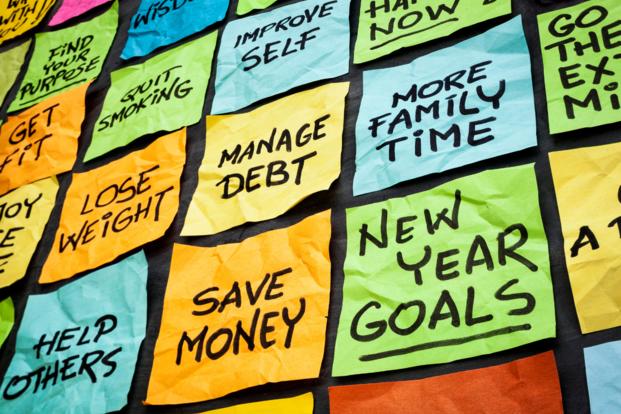For many Americans, the only area where they may have lost weight over the holidays -- and likely over the last couple years -- is their wallet. And as those credit-card statements begin to arrive with the reminder -- and obligation -- of their holiday spending, consumers should resolve now to lower their debt in the new year.
Losing weight and shedding debt are two of the top New Year's resolutions every year, but unfortunately, the resolve of people to stick to their plans typically thaws along with the weather when spring rolls around.
Sometimes these resolutions are just too ambitious, whether trying to lose weight or lower debt. A more measured approach could turn failure into success. Use these five steps to turn 2023 into a year you look back at and fondly remember:
- Start with a specific goal. It's great to want to eliminate all your debt and start with a clean slate, but if you're faced with the proverbial mountain of debt, the goal may seem overwhelming. So start small and add incremental goals along the way. For example, if you want to pay down $20,000 in credit-card debt, try setting a goal to eliminate 10% of that total by the beginning of spring or summer. Then follow up with new goals with each milestone you reach.
- Put your plan on paper. "Budget" is not a four-letter word, so embrace it! One of the first things I advise folks who want to get their debt under control is to establish a realistic budget and stick to it. Establish your financial plan. Just writing (or typing) it can aid in your success. If you've allocated an extra $100 each month toward your credit-card payment, then make that payment immediately and keep moving forward.
- Track your progress. There's few things more satisfying than not paying interest to a credit-card company. The more you pay off, the more money you have each month for other expenses -- or for those unexpected emergencies that occur from time to time. So set a target goal for where you want to be each quarter and track your progress regularly. If you find yourself off track, you can take corrective action or alter your plan, if necessary.
- Reward yourself ... in moderation. While keeping a focus on reducing debt undoubtedly will require some sacrifice, it's OK to reward yourself for a job well done from time to time. But keep in mind that moderation is the key. Maybe your idea of a reward is a night on the town. If so, avoid the five-star restaurant and enjoy something at a more moderate price point. In fact, "moderation" is a good way to start thinking about how your approach to spending should change after you pay down your debt.
- Save like there is tomorrow! While many consumers are used to spending like there's no tomorrow, you should turn that philosophy on its head and start saving like there is a tomorrow! There are a few easy ways to get started. First, live within your means, which really means you should spend less than you earn so you have money left over. Second, with that extra money, increase contributions to your 401(k) or IRA. And third, start saving more for everyday expenses and emergencies by setting up a monthly automatic transfer into a savings account.
Taking charge of your debt is a great way to start the new year. With a plan in place and a disciplined approach, you can start on the road to securing your financial future.
Get the Latest Financial Tips
Whether you're trying to balance your budget, build up your credit, select a good life insurance program or are gearing up for a home purchase, Military.com has you covered. Subscribe to Military.com and get the latest military benefit updates and tips delivered straight to your inbox.















